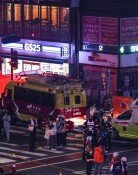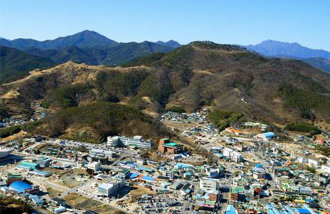Future of Seoul-Washington relations
Future of Seoul-Washington relations
Posted January. 27, 2001 19:40,
What will Seoul's chemistry with Washington be like under the Bush administration? Cooperative relations between South Korea and the United States have varied depending on the political orientation of the governments in both countries. Then, what are prospects for relations between the relatively progressive President Kim Dae-Jung of Korea and the conservative President Bush of the United States?
Political scientists say the views of Korea's authoritarian governments in the past closely corresponded with those of the Republican administrations in the U.S., both of which were founded on anti-communism, but that they ran into occasional conflicts with liberal Democrats who made more of human rights. The chemistry between the Korean and American governments will now be put to the test, they said.
Uncomfortable relations:
President Park Chung-Hee and President Jimmy Carter were on the worst terms. It is said that a ranking Korean official once told President Park: " President Carter is tormenting Your Excellency so much with his threats of a possible pullout of U.S. forces from Korea and criticism of human rights abuses in Korea; I hate him so much that I named my puppies at home 'Jimmy' and 'Carter.'"
Korean-American relations deteriorated further with the revelation of a lobbying scandal involving Congressmen that was masterminded by Park Tong-Sun to sway American public opinion in favor of the Seoul government.
President Bill Clinton did not enjoy comfortable relations with President Kim Young-Sam because the latter wavered in his North Korea policy. During his term of office, Kim changed vice premiers in charge of unification five times, appointing officials from the left of center, then the center and then the right of center.
Periods of good chemistry:
The government of President Chun Doo-Hwan had good chemistry with the Reagan administration. Their "honeymoon" was such that President Chun visited Washington for a summit with President Reagan in January 1981 upon the latter's inauguration. It touched off a wave of anti-American sentiment here for a time.
Earlier, in November 1974, Republican President Gerald Ford visited Korea, spoke highly of Korea's decision to dispatch troops to Vietnam and pledged continued support for Korea. Korea's authoritarian leaders and Republican presidents in the United States were typically on good terms. When Ford came to Korea, anti-Seoul sentiment was running high in the United States in the wake of the so-called October Revitalizing Reforms of 1972 that introduced draconian repression of dissent here. The relatively progressive nature of both President Kim Dae-Jung and President Clinton allowed their governments to enjoy good ties through their sustained engagement with North Korea.
President Kim Dae-Jung and Bush:
There is some distinction between the two leaders in their orientation and policy priorities. The distinction is likely to lead to some friction in the making of specific policies and their implementation. Former undersecretary of defense Richard Armitage, who is to advise President Bush on his Korea policy, is known to abhor the term "sunshine policy."
Ham Seong-Duk, professor of presidential studies at Korea University and specialist on American politics, described the two governments as strangers in need of much time and patience for mutual familiarization. A summit meeting between the two is therefore urgent, he said.
Boo Hyung-Kwon bookum90@donga.com







